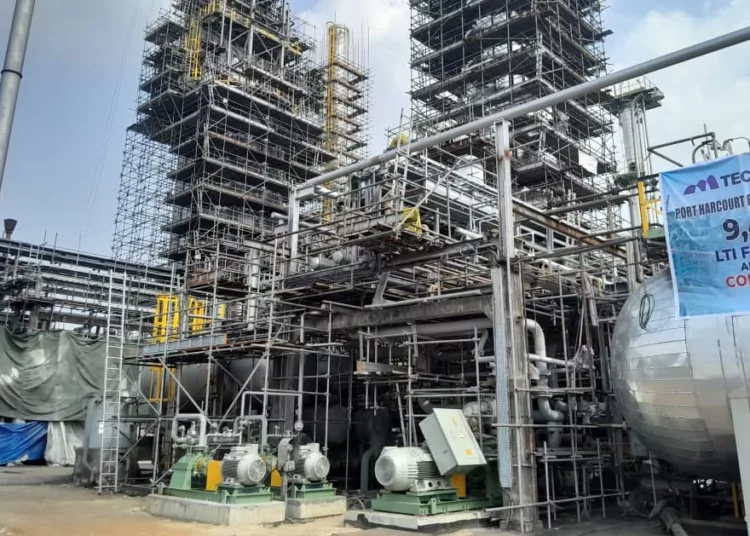Nigerians are experiencing a sense of measured relief with the news that the Port Harcourt Refinery has finally resumed production. Marketers are happy about this, especially with the disclosure by the Nigerian National Petroleum Company Limited (NNPCL) that product loading has commenced. But their feeling is attenuated by what the pump price will be. For most Nigerians, that is the crux of the matter.
Given past failed efforts, the government is beginning to see this as an achievement. Maybe. It has directed the oil conglomerate to move to the facilities in Warri and Kaduna and perform what is, in its opinion, magic.
President Bola Ahmed Tinubu, reacting to the news of the resumption of production at that facility, was reported to have directed the NNPCL to expedite action towards the scheduled reactivation of the second Port Harcourt Refinery and the two others.
Meanwhile, Nigerian consumers are waiting with bated breath to see if what has just happened is the panacea for the energy sector crisis. A combination of the Dangote Refinery and that at Port Harcourt ought to lift the vale of tears over the prolonged supply chain challenges that had bedevilled the nation, leading to foreign exchange-draining import substitution.
The ecstasy around the country is understandable, considering that this particular refinery and the others in Warri and Kaduna have, over the years and through many administrations, gulped billions of dollars in endless turnaround maintenance exercises with nothing tangible to show for the humongous financial cost.
However, the expectation that this development will meaningfully contribute to petroleum products supply and consumption, particularly pricing, is too hasty. It is yet to be seen
Advocacy groups in the oil and gas sector are reluctant to join the train of praise that has become so noticeable as local production at Port Harcourt Refinery starts again. In their opinion, if this is sustained, it will enhance the diversification of product supply and market and price competition.
It is also assumed that product availability, as a result of product supply from more than one source, will guarantee product availability, accessibility and pocket-friendly pricing.
This newspaper is apprehensive that this development may not be sustainable in the long run. Our fears stem from the fact that the industry’s cabals are entrenched and can thwart genuine government intentions.
Worse, in our opinion, is that they are stupendously wealthy with powerful connections that can dampen the political will to do the right thing, for once, in the public interest.
Nigerians know that big industry players have facilities abroad that mainly target the Nigerian market. We are waiting to see if they will allow the honey pie they have been used to for so many years to be removed from their mouths just like that.
There is already talk about multiple supply sources. Indeed, the reference is not just Dangote and Port Harcourt refineries. They are already arguing in favour of continued importation in the guise of diversification and competition to assure availability and accessibility.
We support these market trends if the element of exploiting the already harassed Nigerian consumer is removed from them. For many, that issue should be at the core of any effort to restore normalcy to the nation’s petroleum products supply and consumption.
Since the hasty and ill-advised removal of the corruption-laden fuel subsidy regime, petroleum products have become apparent as the oxygen that powers the economy, the blood on which it runs. They are also the source of the megabucks that control almost all other sectors, from politics to banking, aviation and retail trading.
For the sharks that hover around in the sea of the nation’s complex socio-economic realm, local production of fuel is a threat to their business interest. This is why we are not too optimistic that the arrival of Port Harcourt Refinery will suddenly change the game in favour of Nigerian consumers.
We expect the language to change to justify anticipated disappointments Nigerians are likely to feel when what they thought to be a relief would be an aggravation of their nightmare. Most of the components used in reviving the refinery have foreign exchange input, and we know the value of the national currency in both the official and the so-called black market. Pump prices will also be computed based on the international market price of crude oil. All these will be passed on to the Nigerian consumer, who will have no option but to groan in silence at the failed hope and the rabid quest to recover costs.
We are, therefore, persuaded to bring any optimism we may harbour in check to the effect that the latest development in the nation’s petroleum products supply chain will significantly improve the situation the country is already in. Nigerians have suffered enough letdowns to be in a position to create room for the benefit of the doubt in this particular instance. We do not see any sign that will encourage us to assume that the price of petroleum products will fall to a level that will ease the crushingly burdensome pressure on Nigerians. However, this newspaper will be glad to be proved wrong.
We’ve got the edge. Get real-time reports, breaking scoops, and exclusive angles delivered straight to your phone. Don’t settle for stale news. Join LEADERSHIP NEWS on WhatsApp for 24/7 updates →
Join Our WhatsApp Channel










